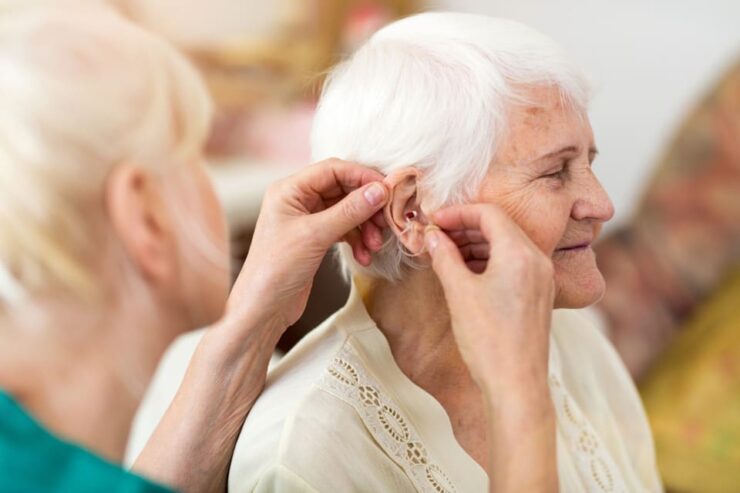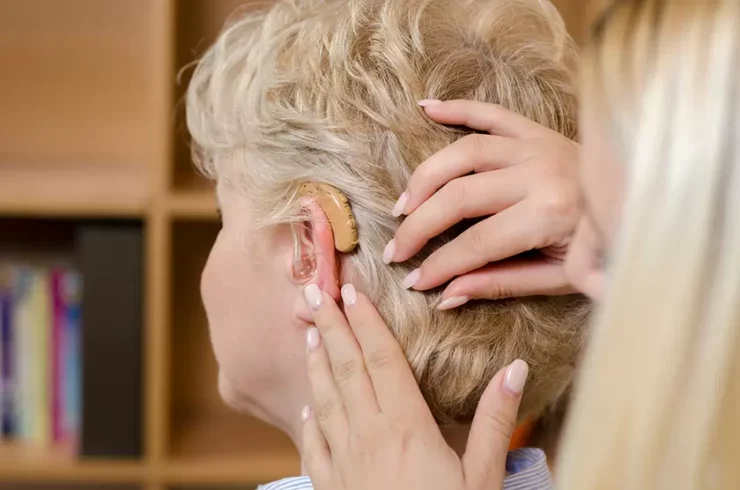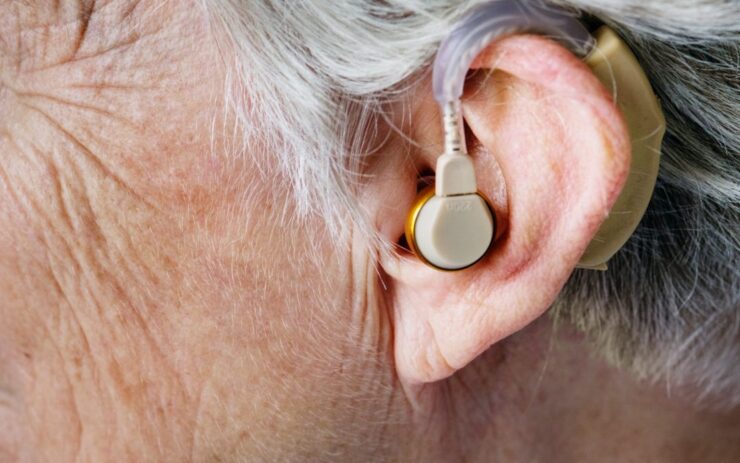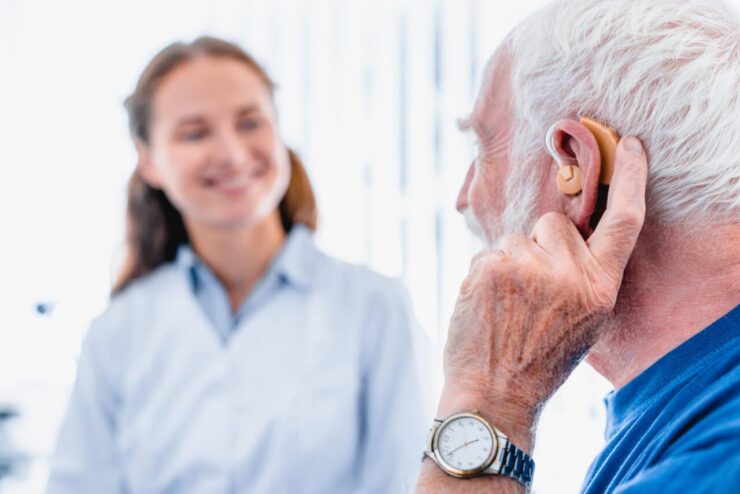As we age, our hearing tends to decline, a natural part of the aging process known as presbycusis. While some hearing loss is inevitable, there are many strategies older adults can employ to protect their hearing and minimize further damage.
Maintaining good hearing is crucial for preserving relationships, staying active in social activities, and ensuring a high quality of life. So, here are helpful tips that older adults can follow to take care of their precious sense of hearing.
1. Get Your Hearing Tested Annually

Maintaining your hearing health is essential, especially as we grow older. According to audiologists.org, it’s recommended to have an annual hearing test conducted by a licensed audiologist. This regular check-up allows you to understand the changes in your hearing and provides an opportunity to address any issues early.
In these annual visits, the audiologist will carry out a comprehensive exam to assess the type and degree of any hearing loss. Based on the findings, they can suggest appropriate treatments and technologies, like hearing aids. This proactive approach is a significant part of your journey towards rejuvenated hearing.
2. Wear Hearing Protection In Loud Environments
It’s important to protect your ears when you anticipate being in noisy situations that could potentially damage your hearing. This includes concerts, construction sites, sporting events, dance clubs, and even while using motorcycles, power tools, or firearms.
In these situations, consider wearing noise-canceling or earmuff-style headphones. For added protection, you can use earplugs underneath the earmuffs. It’s a good practice to always carry a pair of earplugs in your pocket or purse for unexpected loud environments. Remember to safeguard your hearing whenever it’s exposed to hazardous decibel levels.
3. Turn Down The Volume

When enjoying television, music, or other forms of media, it’s wise to keep the volume at moderate levels. Ideally, set your volume to less than 50% of the maximum and resist the urge to increase it during your listening session. This practice protects your inner ear from potential damage caused by prolonged exposure to loud sounds.
Utilize closed-captioning features on your television to help you follow along without needing to increase the volume. Regularly check the volume settings on your phone and perhaps install an app that monitors and restricts loudness levels. It’s possible to enjoy your favorite tunes and shows without the volume being turned all the way up.
4. Avoid Certain Medications
Some medications are ototoxic, which means they can potentially damage your hearing over time. These include common over-the-counter drugs like aspirin and ibuprofen, certain diuretics, antimalarial drugs, and some antibiotics such as erythromycin and vancomycin. If you regularly take any of these medications, discuss alternatives with your doctor.
Additionally, if you’re undergoing treatment with ototoxic cancer drugs like cisplatin, make sure to have your hearing checked regularly. Inform your healthcare provider about any medications you’re taking that could interact with your hearing, allowing them to make informed decisions about your care.
5. Exercise Caution With Earbuds and Headphones

Earbuds, which are placed directly into the ear canal, can emit sound levels that are dangerously loud and close to the eardrum. To protect your hearing, listen at conservative volumes and take frequent breaks from using them. Over-ear headphones, which don’t go directly into the ear canal, might be a safer alternative.
Be cautious with noise-isolating headphones as well, since they block external noise and can lead you to increase the volume to unsafe levels. Take extra care to monitor the volume when using any direct earbud devices, ensuring you’re not exposing yourself to potentially harmful sound levels.
6. Stimulate Blood Circulation To Your Ears
Improved blood flow to your ears may help slow the progression of age-related hearing loss. Consider gently massaging behind your ears and right under the earlobes to stimulate these areas. These simple actions can increase circulation to the head and neck, delivering oxygen and nutrients that support ear health.
Staying physically active is also vital. Aim for at least 150 minutes of moderate exercise per week to stimulate blood vessels and improve overall circulation. This benefits not just your ears but your entire body.
7. Stop Smoking and Limit Alcohol

Smoking and heavy alcohol use can negatively impact your hearing. Smoking constricts blood vessels, including those in your ears, so quitting can help avoid further damage. Similarly, limiting alcohol intake to two drinks per day for men and one for women—or avoiding it altogether—can protect your hearing.
By managing these lifestyle factors, you can help protect your hearing and overall health. Making these changes can be challenging, but the benefits to your hearing and well-being are well worth the effort.
8. Manage Chronic Health Conditions
Chronic health conditions such as heart disease, obesity, and diabetes are linked to an increased risk of hearing impairment. Managing these conditions through diet, exercise, medication compliance, and other lifestyle changes is crucial. Your doctor can assist in creating a comprehensive treatment plan tailored to your needs.
By actively managing these conditions, you’re protecting your hearing and enhancing your overall health. This proactive approach can help reduce the likelihood of developing hearing-related issues in the future.
9. Stay Socially Engaged

Staying socially active is essential for maintaining cognitive function and preventing hearing decline. Engage in regular conversations, whether in person, over the phone, or through video chats. This continuous engagement challenges your listening skills and keeps your mind sharp.
Social isolation can exacerbate hearing loss and cognitive decline, so make an effort to stay connected. Join clubs and reach out to friends and family. Keeping socially active helps mitigate the effects of hearing loss and supports overall well-being.
10. Manage Stress and Anxiety
Hearing loss can trigger a range of emotional responses, including stress, anxiety, and isolation. If you’re struggling, consider seeking counseling or support to manage these feelings. Relaxation techniques such as deep breathing, meditation, and yoga can also provide relief.
Taking care of your emotional well-being is as important as addressing your physical hearing health. Don’t hesitate to seek help when needed, ensuring you’re taking a holistic approach to your health and happiness.
Final Thoughts
Our hearing becomes all the more precious as we age, needing our protection and care. Being proactive against age-related decline is vital. This involves regular hearing tests, mindful habits around noise levels, and a cautious approach to medications and earbud use.
Equally important are lifestyle choices that promote overall health, such as minimizing tobacco and alcohol use, managing chronic illnesses, and nurturing emotional well-being. Staying socially engaged also plays a significant role.
Prioritizing your hearing health is not just about preserving this vital sense. It’s also about maintaining your connection with the world and the people you love. So, treasure your hearing and take steps today to protect it for the future.

